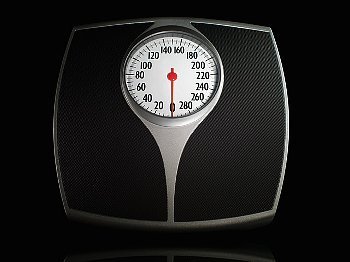2 Ideas For A Healthy You
Concerned by the idea of having to run 80 miles a week, sustaining themselves on nothing but bland, tasteless salads and vegetables all the time, forever forced to spend a lifetime of counting calories and monitoring what they put into their mouth, many people simply give a diet a wide berth. And that's not good.
The simple truth of the matter is that if you want to keep healthy and maintain your wellbeing, then yes, you are going to have to make some changes. However, the rate at which you decide to implement those changes, and indeed, the changes to your lifestyle you wish to introduce, is entirely at your discretion.
The following is intended as a succinct overview of some strategies that you can confidently make use of in order to make your healthy living ambitions just that little bit easier.
Set Yourself Realistic Goals
One of the major reasons why people end up failing when trying to implement a new healthy living plan is that they set themselves up for failure by choosing overly ambitious, unsustainable ideas, and objectives.
For example, if you happen to be working full time and also have to care for young children, then it is safe to say that attending the gym four times a week is not likely to be something you can keep up for any length of time.
By setting yourself smaller, more achievable milestones you will help to boost your confidence which in turn will encourage and inspire you to achieve more progress and work even harder. Remember this: think big, start small. Once you get on the road to progress, you will achieve all your dreams in due time.
Keep a Food Diary
Many of us will at some time or another, indulge in so called comfort eating. Comfort eating refers to the process whereby a person will eat certain types of food (such as foods which have high levels of refined sugar and saturated fats) whenever they feel a negative emotional response. The food is consumed in an attempt to block out these painful feelings, and so if left unchecked, can prove to be very problematic.
A food diary can help a person audit their eating plan, and determine to what extent they do engage in this sort of behavior. If comfort eating is an issue, then the dieter will be able to identify if there are specific triggers involved that then compel them to seek out the nearest candy bar/tub of ice cream etc and then actively work to defeat and overcome such triggers.
Just make sure that you are brutally honest and organized when recording your food diary.
Related Articles
-
The Weight Loss Pills Worth Considering
Being slim is the current vocabulary. Most people especially the ladi
-
Putting Together A Raw Food Weight Loss Menu
Planning a raw food weight loss menu is not fairly as daunting as you
-
Just What Exactly Is Needed With Laparoscopic Obesity Surgery?
When looking at weight reduction surgica
-
Is Exercise Making Us Fat?
Does it seem that no mat
-
How to Lose Weight Naturally at Home
Make up Your MindThis is very important. If you make half-hearted effo
-
Healthy eating and Nutrition Advice for Men
A healthy diet is more than just fuel for the body; it not only he
- DON'T MISS
- Overweight Health Risks
- The South Beach Diet Plan: Restaurant and Party Tips for South Beach Dieters
- Free Weight Loss Info: The Way Calories Work
- Does Guilt About Overeating Make You Overeat?
- Mind the diet without starving the mind
- Top 5 Weight Loss Fiber Food Ideas for Dinner
- Weight Watchers Vs. Fitness Centers
- The Behind Story For The U.s. Top 10 Web 2.0 Companies (1)
- Close Kept Secrets To Weight Loss Lesson 16
- Loss of Belly Fat Through Detoxing




